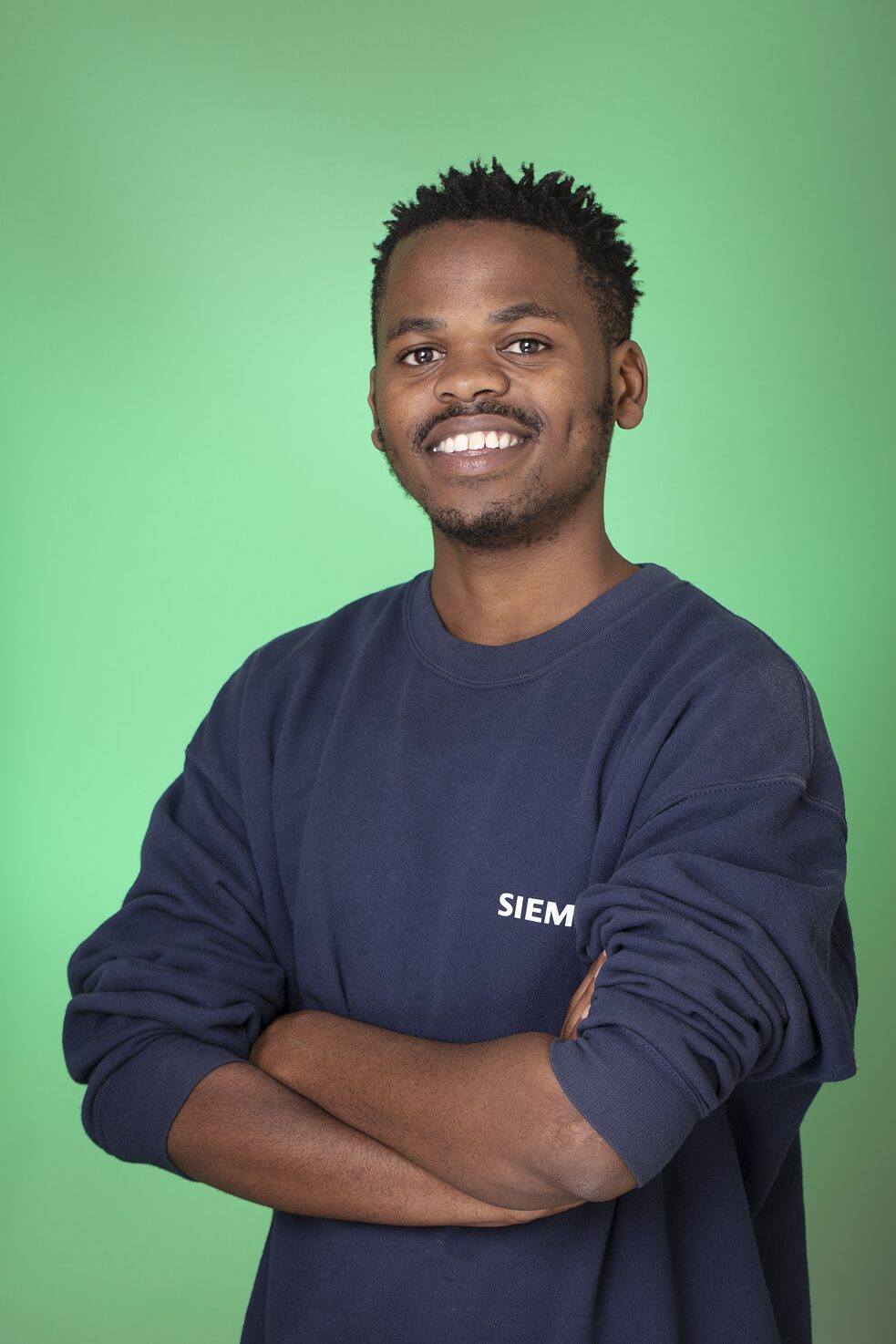Joseph Shandlale
“Living in Germany was certainly one of the highlights of my career.”
Mechatronics technician at Siemens, South Africa
1. Why did you decide to do this apprenticeship in Germany?
I was already studying at a South African university when I applied at Siemens as I was interested in completing the practical part of my studies there. The organization then informed me of the apprenticeship and immediately, I knew this was something for me. I was enticed by the idea of living in a foreign country and learning a new language while continuing the career path that I had already chosen.
2. How did you prepare yourself and how did the application process go?
Since applying for an apprenticeship abroad is a life-changing decision, I wanted to make sure I understood what this meant, as I had never been abroad before. I researched online to help me grasp what would be expected of me during the apprenticeship. There are also a lot of videos online about life in Germany, how certain aspects such as transportation and the medical system works, as well as general information for new students. After several interview rounds, three of us were chosen to be part of the programme. Since the apprenticeship is conducted only in German, Siemens supported us with language courses at the Goethe-Institut up to the B2 level. After I had completed the necessary language requirements, I could begin with the visa application process.
3. What personal and professional requirements do you think are important for this occupation?
I think this occupation can be successfully completed by anyone who is disciplined and motived. You must be an investigative individual who enjoys assembling, installing, and maintaining systems as this will be a part of your daily job. It helps to also be interested in mathematics, physics, and technical innovation. Furthermore, working for a global company like Siemens means you might have the opportunity to work at any of their locations around the world, therefore its vital to be open-minded. Being able to speak German well also helped me navigate my new surroundings, so I would encourage those interested to learn as much German as possible.
4. What do you learn at the Siemens International Training Academy and what do you learn at the company?
At the academy we learnt the principles of mechanics, electronics as well as computer skills. I enjoyed that we were offered additional German classes, meaning I was able to complete my C1 level during the apprenticeship. Our apprenticeship was very international, so I had a chance to meet other students from across the world. At Siemens, we applied what we had learnt in the classroom. This not only meant the technical aspect such as metalwork skills and the use of certain tools in the workshop, but also how to work in a team and how to solve problems.
5. What advice do you have for South Africans who are interested in an apprenticeship?
Make sure you have a plan and manage your time well. The apprenticeship takes 3,5 years to complete, and you earn while you learn. Be open and take each day as it comes as you will have the opportunity to not only learn about the job but also about yourself. Siemens also offers a lot of support during the apprenticeship, so do not be afraid that you will feel alone.
6. What tasks are you responsible for today?
I currently work at Siemens South Africa in the digital industries department as a mechatronics technician. I am responsible for automation and drives processes. This means, rotating between repairing devices on site, being on standby and managing the tech desk where we provide solutions and assistance to our clients when problems arise.
7. Which tasks do you enjoy the most and why?
I enjoy working with the clients and solving problems. While doing that I like finding innovative and new ways of doing things, which makes each day exciting and never the same.
8. And after the training? What are your career goals?
At some point, I’d like to move back to Berlin, as I really enjoyed my time there.
This interview was conducted by Sinenhlanhla Buthelezi. We are lucky to have Buthelezi in the media development department of the Deutsche Welle Academy.

